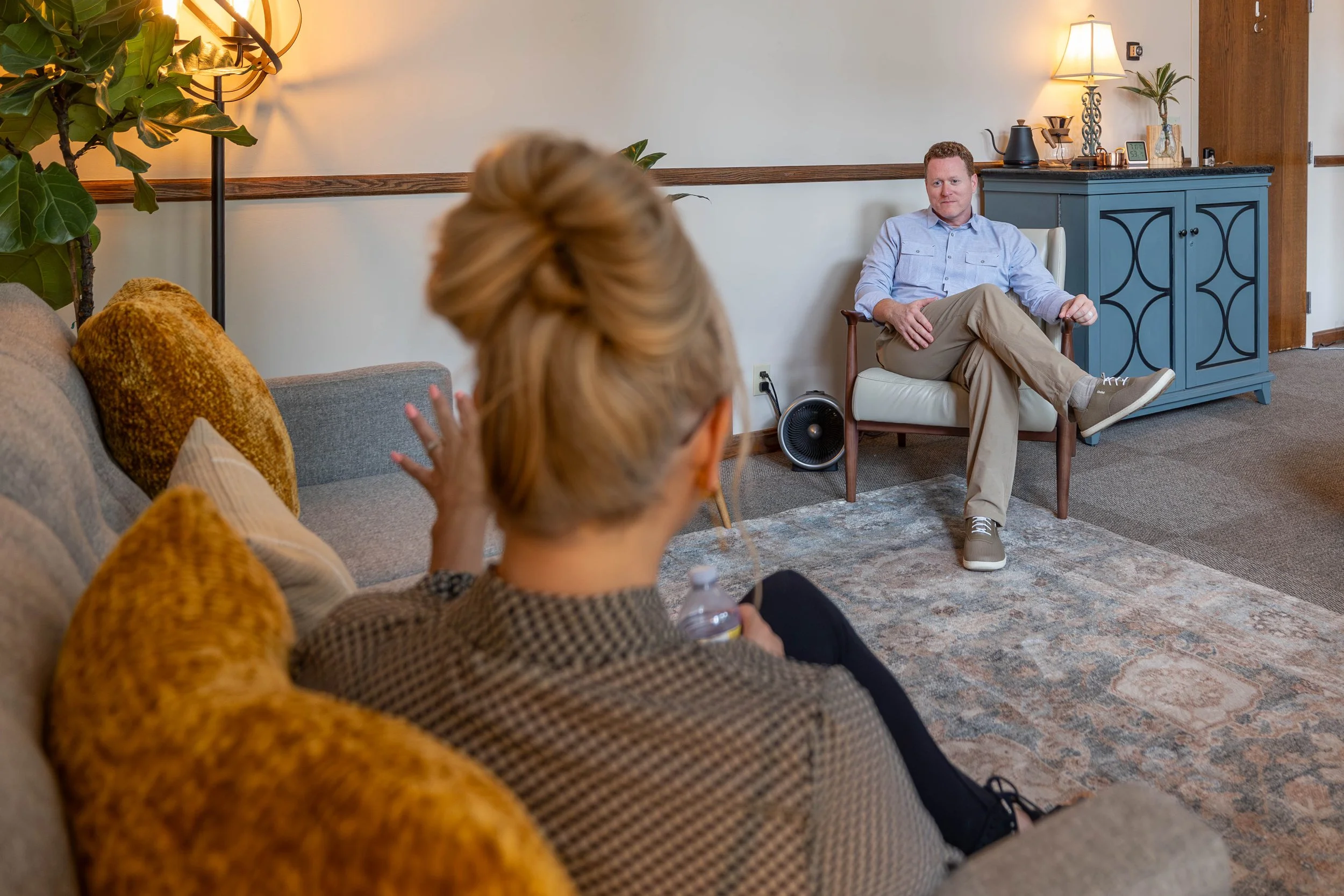
Family psychotherapy
Deep family therapy for closer, calmer days at home.
A private, relaxing space to pause, listen differently, find each other, and work on your connection again.
Counseling for families ready to address unhealthy patterns.
Whether you’re dealing with conflict, trauma, life transitions, or disconnection, our family counselors provide a neutral and comforting space where every voice is heard. We meet as a system, track what’s unfolding, and listen for what’s not being said, refusing to label any one member as “the issue.”
How we can support you
Attachment-informed, psychodynamic family counseling.
In our family therapy sessions, we slow the conversation and notice each person’s role – peacekeeper, go-between, silent observer. We curiously seek to understand, identify, and process the factors that influence these roles, and explore our observations while examining new alternatives. The deep, psychodynamic work helps everyone manage strong feelings, voice needs clearly, and set healthier individual and family frameworks without blame.

What may shift over time
Less reactivity. More connection. A harmonious household.
With consistent weekly work, families report greater emotional flexibility, more respectful communication, and a shared language for repair. Old narratives shift: the angry teen becomes the truth-teller, the withdrawn parent becomes emotionally present, and siblings move from rivalry to mutual support. The household feels calmer, allowing each member to pursue growth without fear of destabilizing the system.
Challenges we treat
Loss, life transitions, disconnection, and more.
These are common stressors we encounter in family counseling sessions:
Cultural, political, and faith-based divides
Parent-teen disconnection
Sibling rivalry or scapegoating
Boundary confusion or emotional cutoff
Blended-family adjustment
Intergenerational trauma/grief
Chronic illness or addiction strain
Major moves, losses, financial upheaval
Through consistent sessions, our goal is to help you create the atmosphere of safety everyone needs to grow, thrive, and stay lovingly connected.
The Soileau Experience
Calm, private, and emotionally-grounded family counseling.
Family therapy unfolds in a space designed to calm the body, allowing the mind to listen. Our private suite helps insulate you from outside interactions, amber lighting reduces stress, and gentle background music sets a tone of safety. Parents, teens, and siblings feel the difference immediately: they’re not in a clinical cubicle but a carefully curated environment that honors the gravity of family stories.
Frequently Asked Questions
-
Reach out via phone or our contact form. We’ll reply within 2 business days to offer phone consultation times.
-
We’ll talk through what your family is hoping for, who will attend sessions, and whether our approach fits. If it feels aligned, we’ll share next steps, including scheduling and intake paperwork.
-
We work with families experiencing:
Cultural, political, and faith-based divides
Conflict or communication issues
Parenting challenges
Sibling dynamics
Grief or life transitions
Emotional cutoff or estrangement
Past trauma or intergenerational patterns
-
This approach pays attention to the internal experiences of each family member and how those inner worlds shape external behaviors and interactions. We explore unconscious roles, defenses, and emotional rules that develop over time, and help family members make sense of one another in new ways.
-
It varies. Sometimes the full family is present; other times we work with a subset (parents and teen, siblings, etc.). We’ll clarify this during your consultation.
-
Yes. We offer both in-person sessions at our Kansas City office and secure video sessions, depending on your location and therapist availability.
-
Rates vary by therapist. All sessions are self-pay. We offer monthly superbills for clients wishing to use out-of-network insurance benefits.
-
We use a psychodynamic and relational lens in all family therapy sessions. That includes:
Psychodynamic family therapy
Relational and attachment-based approaches
Object relations and systems thinking
These modalities help us understand the emotional systems, unconscious roles, and relational rules that have formed over time. They guide how we work with families to create insight, support emotional repair, and encourage more honest connection.








